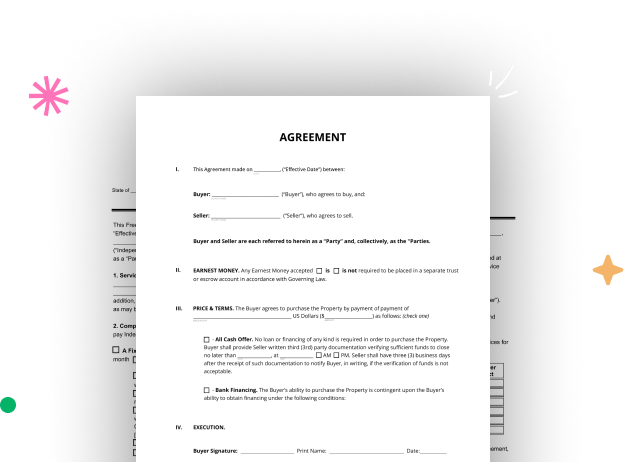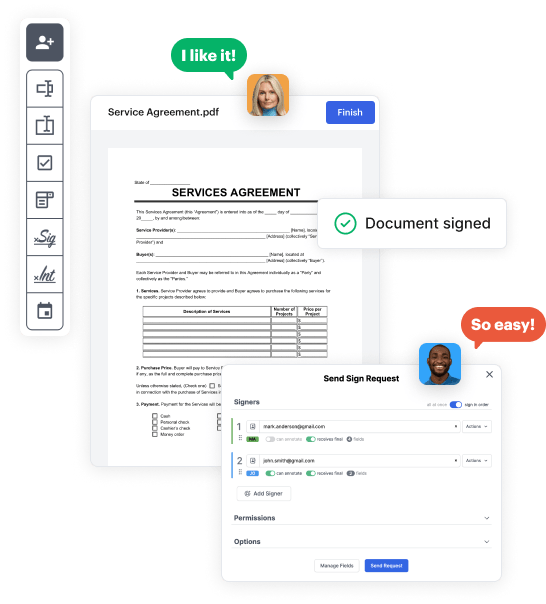

Start by setting up a free DocHub account using any offered sign-up method. Simply log in if you already have one.
Try out the entire suite of DocHub's advanced features by registering for a free 30-day trial of the Pro plan and proceed to craft your South Carolina Real Estate Legal Document.
In your dashboard, select the New Document button > scroll down and choose to Create Blank Document. You will be redirected to the editor.
Utilize the Page Controls icon marked by the arrow to toggle between two page views and layouts for more flexibility.
Explore the top toolbar to place document fields. Insert and format text boxes, the signature block (if applicable), add photos, and other elements.
Arrange the fillable areas you incorporated based on your chosen layout. Modify the size, font, and alignment to ensure the form is straightforward and professional.
Save the finalized copy in DocHub or in platforms like Google Drive or Dropbox, or design a new South Carolina Real Estate Legal Document. Distribute your form via email or utilize a public link to reach more people.